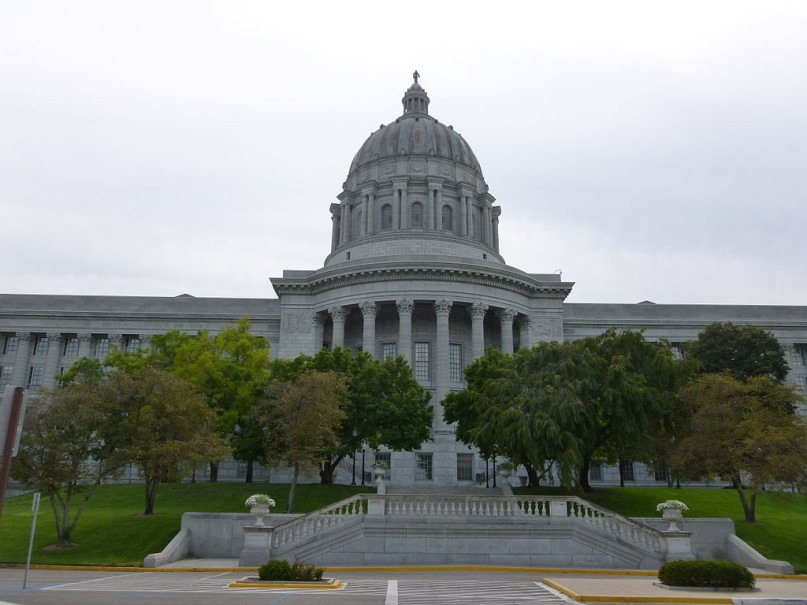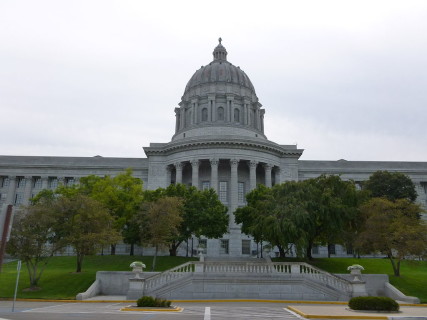(RNS) A controversial bill that provides greater protections to faith groups and businesses whose religious beliefs would prevent them from serving gay people advanced in the Missouri Senate after Republicans ended a marathon filibuster that lasted more than 36 hours.
The bill, known as Senate Joint Resolution 39, passed on Wednesday (March 9) 21-11 after the GOP senators broke the Democrat-led filibuster using a procedural move, according to media reports from Jefferson City, the state capitol.
A final vote is expected Thursday and then the measure moves to the House for further action. If approved by both houses, it would go before the voters for approval as an amendment to the state constitution.
The Missouri proposal is the latest in a series of measures introduced around the country by conservatives in reaction to last year’s U.S. Supreme Court legalization of same-sex marriage.
The proposed amendment would prohibit the state from penalizing “a religious organization on the basis that the organization believes or acts in accordance with a sincere religious belief concerning marriage between two persons of the same sex.”
The measure would also protect vendors who refuse to provide services to gay couples, and individuals who decline “to personally be a participant in a wedding or marriage.”
Clergy and places of worship would be protected should they decline to host or perform ceremonies and other services for same-sex couples because of their beliefs.
Opponents said such a change isn’t necessary because it is already unconstitutional to force a religious group to marry a couple. They said the proposed amendment is an overreaction to last year’s high court ruling, and they argue that such laws invite boycotts and hurt local businesses.
But conservatives say such measures are a matter of “commonsense” and religious liberty, as Roger Severino, director of the Heritage Foundation’s DeVos Center for Religion and Civil Society, put it.
“Big Business and the cultural left have once again teamed up to try to block popular religious freedom protections,” Severino said.
(David Gibson is a national reporter for RNS)






